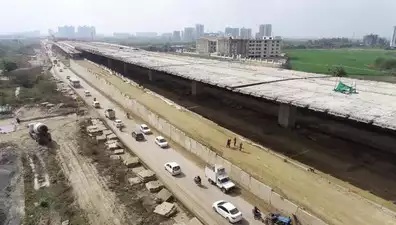An IIT-Delhi audit of Godrej Summit, a housing project off the Dwarka Expressway, has cautioned about the presence of chloride in water in the area that has a detrimental effect on concrete buildings and suggested a robust maintenance framework to tide over the problem.
Chloride in water corrodes the embedded steel reinforcement of buildings, affecting their strength, said the IIT panel’s report on Summit in Sector 104. The audit was commissioned by Godrej Properties.
“Basis our understanding of multiple projects in this belt of Dwarka and Dwarka expressway, we have observed similar issues being faced by many other communities,” the IIT team said in its report.
Excessive chloride was also found in concrete in four towers at Chintels Paradiso, where a vertical cave-in of five flats in February 2022 led to the death of two residents. Since then, that tower, ‘D’, has been abandoned and three more have been declared unfit for habitation. Paradiso is in the same area, in Sector 109, and its structural audit is also being carried out by IIT-Delhi.
After the completion of Summit in 2017, problems like sagging of balconies and floors in some apartments began to show up. A company spokesperson said, “We deeply regret the construction quality issues that have emerged.” The company said it has initiated strengthening and enhancement of balconies across the project and decided to commission an audit.
The report, authored by Prof Bishwajit Bhattacharjee, said, “Basis investigation, it was found that the structural integrity and safety of the basement and overall structure elements are apparently intact by and large, subject to appropriate repair of isolated distresses.”
Technical tests, it added, had revealed the presence of chloride in concrete, which could have happened because of chloride in water or aggregate used in concrete. “This chloride, when in contact with water, leads to initiation of corrosion of embedded steel reinforcement,” the report said, adding there are pockets in the project where corrosion has occurred beyond acceptable levels, and the same can be treated and repaired locally.
The IIT team noted that corrosion can be stopped by preventing water from entering concrete and advised a “robust and thorough maintenance framework for concrete, waterproofing, painting and mechanical, electrical, and plumbing (MEP) services”.



